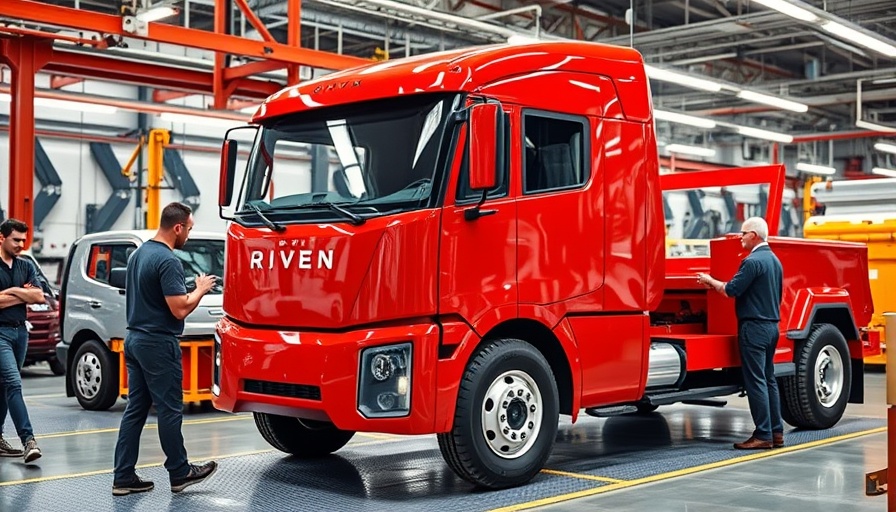
The Rivian Landscape: Adjusting Expectations Amid Global Pressures
Rivian Automotive, the all-electric vehicle company, recently released its Q1 earnings report and revealed significant changes to its expectations for 2025. While the company surpassed Wall Street estimates for the first quarter, it lowered its vehicle delivery targets and capital spending projections due to the pressures of global trade tariffs. The updated guidance now anticipates deliveries between 40,000 and 46,000 units, down from an earlier estimate of 46,000 to 51,000 units.
Understanding the Economic Factors at Play
Rivian's adjustments reflect broader economic uncertainties that many businesses face today. The impact of tariffs, particularly a high 25% tax on certain imported auto parts, has affected production costs considerably. Rivian's Chief Financial Officer, Claire McDonough, pointed out that this could add thousands of dollars to production costs per vehicle. Even though Rivian builds its trucks and SUVs in the U.S. at a plant in Illinois, it hasn't escaped the ramifications of global economic dynamics.
Rivian’s Commitment to Sustainability and Innovation
Despite these challenges, Rivian remains steadfast in its mission to promote sustainable electric transportation. The company has positioned itself as not just a car manufacturer but as a leader in environmental innovation. As electric vehicles (EVs) gain traction in the automotive industry, Rivian is committed to future technologies that reduce carbon footprints and improve user experience. This involves investing in advanced research and development, which will require carefully balanced spending amidst increased costs.
Trade Policies: A Thorn in the Side for Auto Manufacturers
The U.S. trade policies and tariffs have left a mark on many auto manufacturers, especially in the electric segment where components often rely on international sourcing. Rivian's situation highlights the interconnectedness of global trade and local manufacturing. With the uncertainty of evolving trade regulations and tariffs, industry observers are wary about how these factors may dampen consumer sentiment and demand. Some analysts suggest that a lack of clear policy decisions could stifle innovation and slow down the transition towards electric vehicles.
Looking Ahead: Opportunities and Risks
Despite the current challenges, Rivian's long-term prospects may still be bright. As demand for electric vehicles increases and more consumers prioritize sustainability, companies like Rivian could gain significant market share. It will be crucial for Rivian to navigate the tariff landscape effectively and explore opportunities for local sourcing, potentially mitigating some of the risks associated with international tariffs and trade.
The Consumer Perspective: What This Means for You
For consumers, Rivian's adjusted delivery plans might signify a wait for their dream electric vehicle, but it also serves as a reminder of the larger implications of global trade on everyday life. The decisions made by manufacturers can directly affect prices and availability for consumers. If you are considering buying an electric vehicle, staying informed about the market pressures that affect availability and cost could provide better decision-making insights.
Conclusion: The Path Forward
In conclusion, while Rivian faces significant challenges amidst a turbulent economic climate, its commitment to sustainability remains intact. As the automotive world evolves with technology and consumer demands, understanding the broader impacts of trade and tariffs will be essential for both businesses and consumers. Rivian’s story emphasizes that even in times of uncertainty, innovation and adaptability can pave the way forward.
 Add Row
Add Row  Add
Add 




 Add Row
Add Row  Add
Add 

Write A Comment